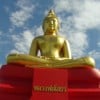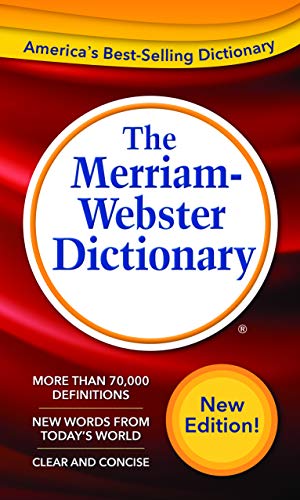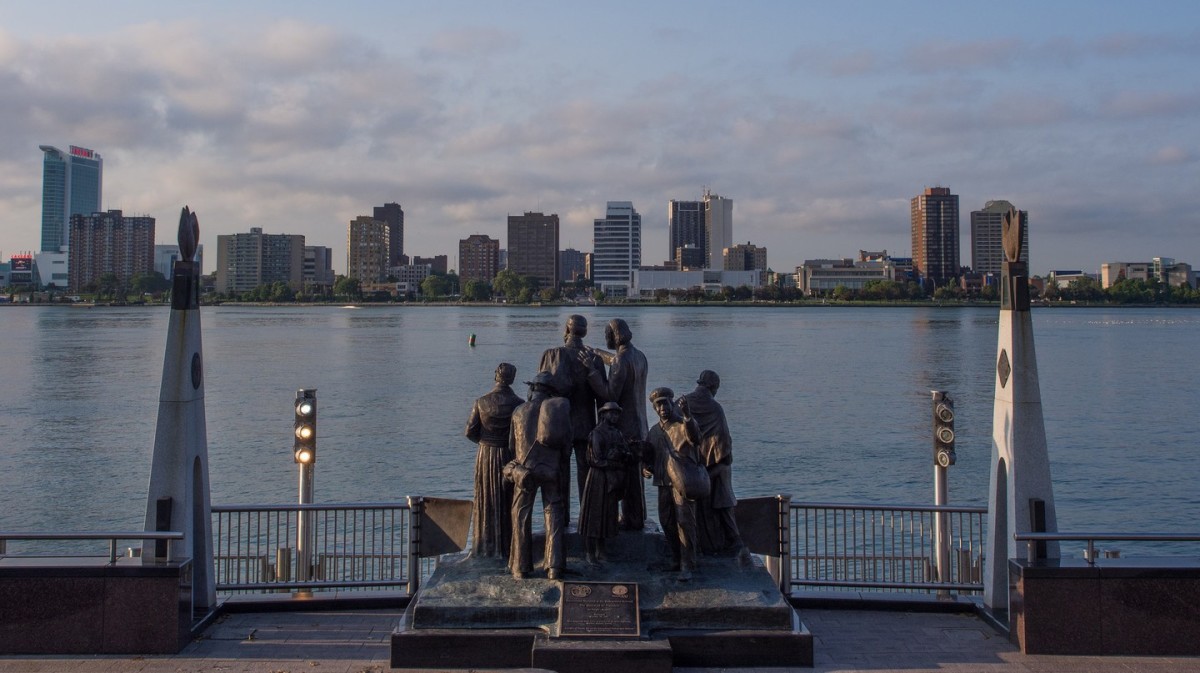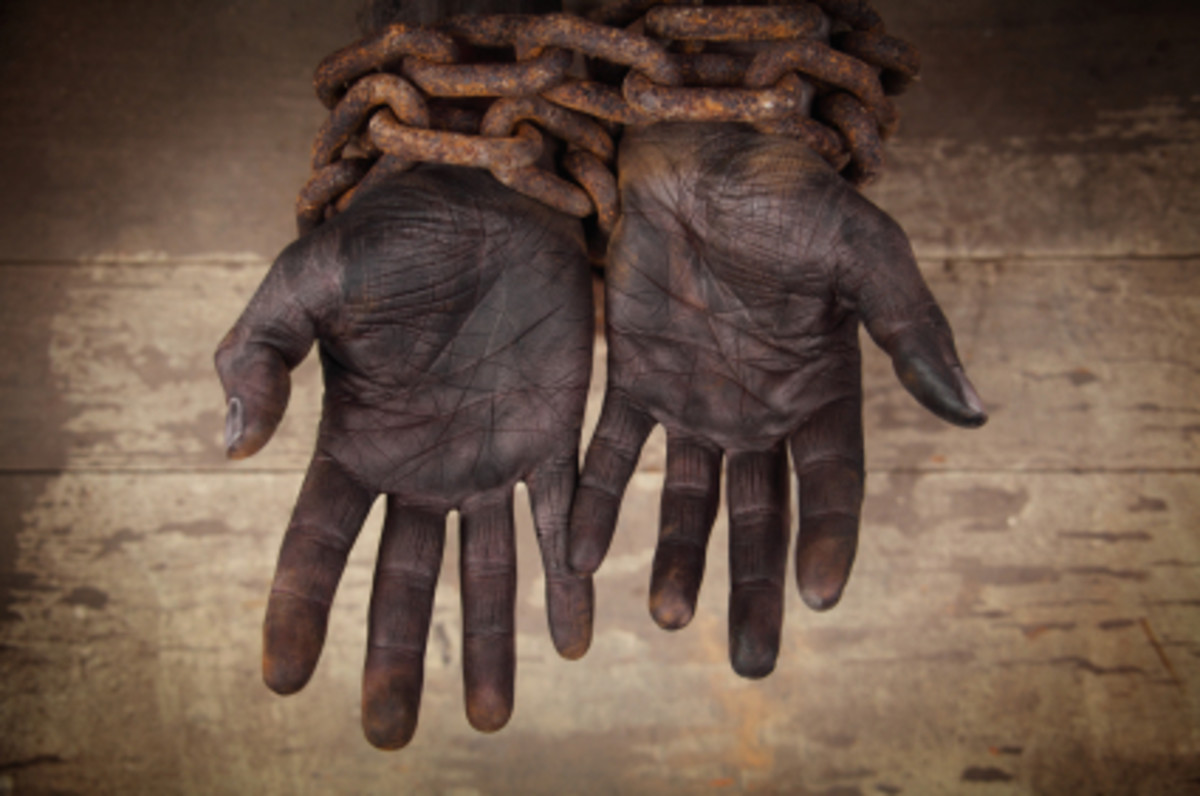An Expat's Thoughts on Freedom

Introduction
It's been over eight years since I left the United States and I've enjoyed spending time traveling, working, and living in Asia. I've had the chance to meet expats from just about everywhere you can imagine and have had countless conversations about the differences in living in Asia vs. our home countries. When discussing these differences with expats from the United States, the conversation often turns to the topic of freedom. In this article, I'll explore the concept of freedom by referring back to its basics as defined by the Merriam-Webster dictionary.
The Merriam-Webster Dictionary
The Quality or State of Being Free
Merriam-Webster Dictionary's broadly defines freedom as the quality or state of being free. Narrowing things down slightly, the first example of freedom offered is, "the absence of necessity, coercion, or constraint in choice or action". Of course, no society on Earth allows citizens to act without restraints entirely. Therefore, when we are discussing freedom, I think it's important to realize there are no absolutes. The concept of freedom is a gray area that differs from person to person, and even more so from culture to culture.
Liberation from Slavery or Restraint or From the Power of Another
The next example of freedom Merriam-Webster offers is "liberation from slavery or restraint or from the power of another". While slavery is illegal in most countries in the modern world, including the US, far too many people still slip through the cracks. Jennifer Turner of the ACLU Human Rights Program writes about slavery in the forms of human trafficking and forced labor (and the US State Department's admission of such slavery) here. Beyond such blatant forms of slavery lie criticisms of the US criminal justice system, for-profit prisons, and the like.
According to prisonpolicy.org, the US has only 5% of the world's population, but 22% of the world's prisoners. This fact has been a common theme in my discussion experiences. One thing that most expats have pointed out is the vast difference in policing in Asia compared with the United States. The amount of proactive, I would argue often even predatory, policing in the US seems to be much higher than in Asia. In Asia, I find policing in Asia to be more reactionary, similar to how firefighters operate in the United States. The officers respond to problems more than they do pound the pavement, seeing if they can turn up any violations of law.
The contrasts can be rather extreme with US policing being far too aggressive and profit-driven while it's not uncommon to find police in Asia that do their best to avoid getting involved in situations where their assistance is needed. In the expat discourse, we've often come to the conclusion that good police policy likely lies somewhere much closer to the middle ground. However, I would give Asia the freedom award in this category as citizens seem much more free to go about their daily business unimpeded (thus being less restrained from the power of another).
The Quality or State of Being Exempt or Released Usually from Something Onerous
The next example of freedom Merriam-Webster offers is "the quality or state of being exempt or released usually from something onerous". Again, a fairly broad definition that is open for interpretation. We could consider this as freedom from slavery which Merriam-Webster defines as drudgery, toil, or submission to a dominating influence. There are plenty of other burdens we carry such as education expense, healthcare, and exploitative labor.
This is an area where US expats and those from other industrialized nations have the biggest divide. US citizens are commonly weighed down with student loan debt and lengthy academic schedules that insufficiently prepare one for the workplace.
According to studentloanhero.com, 44.2 million Americans share in $1.48 trillion in total U.S. student loan debt. I would, along with many of my peers, consider this to be a major impediment to freedom. That being said, I do find the strong point of the U.S. Education system to be accountability. There are far less second chances for students, forcing them to be well-prepared at all times. Of course, it is up to the individual to take this skill and translate it into success in terms of making a living.
While education debt in Asia pales in comparison to the US, students often have to make due with less resources. Libraries can be lacking and online information can be severely censored if not blocked outright, especially in China. I would award the US with the freedom award in terms of free Internet access, though government surveillance and corporate influence are putting this freedom at jeopardy.
In terms of healthcare, the US falls far short. While the system offers great expertise and technology to those who can afford it, those who cannot are left to desperate attempts to crowd-source money for surgeries and treatments. Most other developed nations seem to offer citizens greater freedom of healthcare with less ties to employment and the imposing pharmaceutical industry.
The Quality of Being Frank, Open, or Outspoken
I touched on unrestricted use, ease, and facility above, so it's a good time to move onto what Merriam-Webster defines as "the quality of being frank, open, or outspoken". This is an area where the US does fairly well, along with other developed countries. The freedom is speech is an important freedom that is ignored or suppressed in parts of Asia and elsewhere in the world.
US citizens are generally free to criticize the government which is a stark contrast with the lack of free speech in places like China. Although oligarchy and online censorship of anti-establishment content threatens free speech in the US, there is still vastly more room to be outspoken. Citizens in China criticizing the communist party will be shut down swiftly and with a vengeance. In Thailand, one certainly doesn't want to put the lese-majesty laws to the test either. While most countries have issues with the wealthy and powerful's voices drowning out those of the masses, the freedom award goes to the western world in this category.
Closing Thoughts
In the end, I am grateful to have the ability to move around the world relatively freely. I appreciate that the US passport allows me to do that. In fact, for me personally, the strength of the US passport and the flexibility it gives me is the most valuable aspect of my US citizenship. However, when it comes to daily life, I find Asia to be more relaxed and free. Should my family need me, I would consider returning to the US. Aside from that, my plans for life going forward are geared towards Asia. It's up to each of us to find the place that works the best for our particular preferences. If you haven't found yours, I hope these musings are helpful in your journey. Best of luck!
The Greatest Impediment to Freedom by Country from My Perspective
Country
| Impediment to Freedom
|
|---|---|
Thailand
| Delayed Democratic Elections
|
China
| Inability to Criticize Government
|
Philippines
| Policies Towards the Indigent
|
Japan
| Self-Imposed Cultural Views
|
USA
| Corporate Influence on Politics
|
© 2018 Eastward









